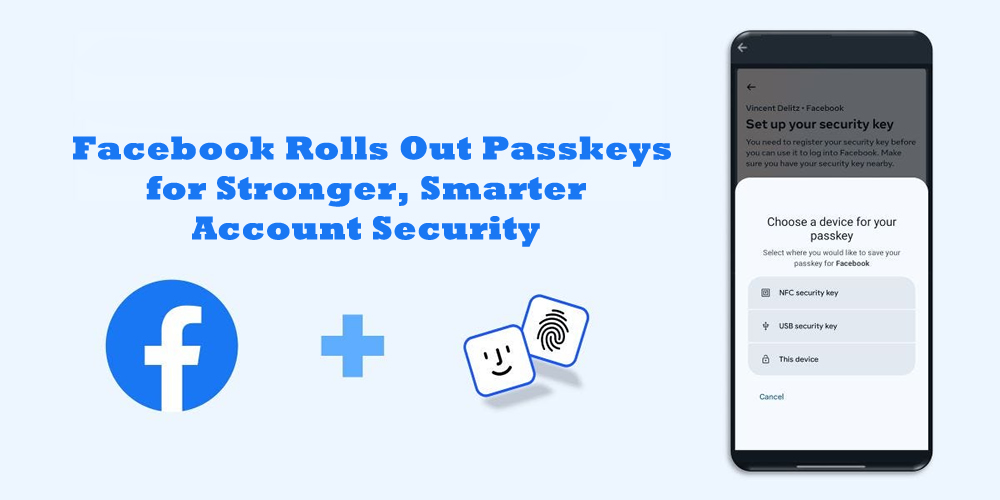In this era of rapidly evolving online threats, Facebook has taken a progressive stride by rolling out passkey access to the platform. Users are now permitted to log in with fingerprint or facial recognition biometric options as opposed to traditional passwords. This advancement increases account security by keeping login credentials on your device, providing a crucial buffer against phishing and hacking. Passkeys, in this sense, enable encrypted communication between your device and the platform, as opposed to older methods, which are often compromised. Above all, this decision places Facebook in the league of various other digital platforms that aim to employ cutting-edge cybersecurity measures.

How Passkeys Offer More Than Just Convenience
Passkeys do not merely facilitate logging in but also encompass various other things under their umbrella within the Meta ecosystem. For instance, Meta confirms that users will soon be able to autofill payment details using Meta Pay via these secure credentials. And benefits do not stop there: before passkeys, encrypted message backups would have been vulnerable; the new era now presents an added layer of security. While the likes of X, LinkedIn, and TikTok had adopted passkeys earlier on in the system's development, Facebook’s passkey implementation still holds significant importance in affording user-driven security. No matter when it joined the trend, Facebook is clear about emphasizing tools to nurture user trust in this day and age when digital privacy is much more relevant than ever.
Seamless Setup and Cross-App Integration
The rollout begins with iOS and Android devices, with an imminent expansion to Messenger. The user experience will not, however, require users to set up a second passkey for Messenger; the one for Facebook will suffice for both apps. Upon release, the feature will be accessible for toggling using the Accounts Center located in the profile settings. Conversely, if your device doesn't yet support passkeys, you can continue using your passwords or another method of verification. This approach guarantees at least one avenue of access, thereby eliminating the risk of anyone getting locked out while the change occurs. However, those who are quick to adopt passkeys will enjoy faster, smoother, and more secure logins.
Meta’s Strategic Step Toward Stronger User Trust
With the cyberattacks not losing pace, this update marks a significant shift toward security on Meta. Passkeys are, of course, much easier to use and much more secure than classical passwords. After all, security on social platforms is no longer just a choice. In all fairness, last in adoption might be an apt description for Facebook's move to implement passkeys, but it is one it had to take and at the right moment. The more users become aware of their vulnerabilities in the digital sphere, the more mechanisms like these will matter.































